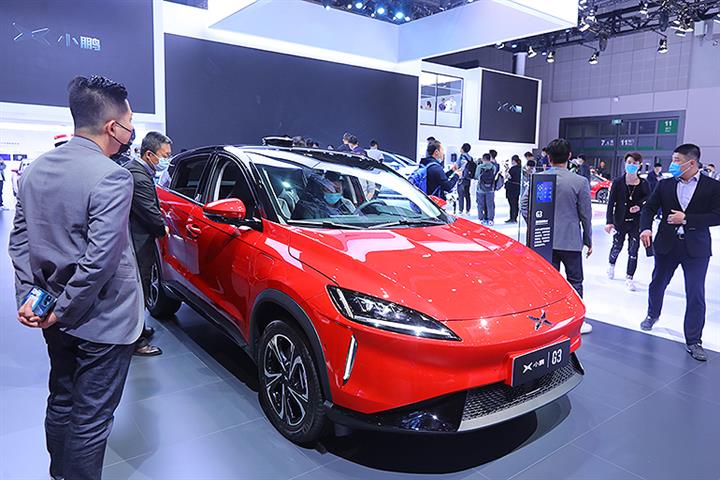 China’s NEV Sales Boom Amid Fears of More Price Hikes
China’s NEV Sales Boom Amid Fears of More Price Hikes (Yicai Global) March 29 -- Orders for new energy vehicles at some Chinese dealerships reached new highs this month as customers rush to snap up new autos amid concerns that prices might keep going up as the cost of raw materials continues to surge.
US electric car startup Tesla raised its prices three times in 10 days this month. And since January, more than 20 car companies, including both conventional automakers moving into the NEV field, such as BYD, as well as new electric car startups like XPeng Motors, have increased the price on over 50 models, according to incomplete statistics.
Commodity prices have soared amid supply chain disruptions in the wake of the Russia-Ukraine conflict, pushing up the costs of metals used in autos, such as aluminum and nickel. As a result, fearing that prices will only rise further, orders at some dealerships have reached record highs.
Our store broke its all-time monthly sales record on March 20, two days after Guangzhou-based Xpeng announced a price hike, a sales manager at an XPeng store in eastern China told Yicai Global. And other Xpeng outlets in southern and central China as well as dealerships for other car brands, such as Neta and BYD, told Yicai Global that sales have never been so good.
The company received 15,000 orders this month, a 50 percent increase from the month before, said Wang Yi, sales director of a car firm. The boom is expected to last until next month, he added.
A customer who was considering buying the XPeng P5 but still wanted to shop around, placed his order quickly after sales staff told him the price was going up, he said.
Compared to fossil fuel-powered cars, new energy vehicles not only cost less to refuel amid rising oil prices, but they also benefit from preferential policies such as zero purchase tax and no number plate restrictions.
However, not all electric car companies are riding the wave.
Orders have not increased significantly, despite customers reacting positively to the manufacturer’s price increase, an investor in a dealership for a less well-known NEV startup told Yicai Global. Since his customers are mostly big firms such as ride-hailing companies, it will be difficult for his business to sell the cars at the new prices, he added.
Editor: Kim Taylor